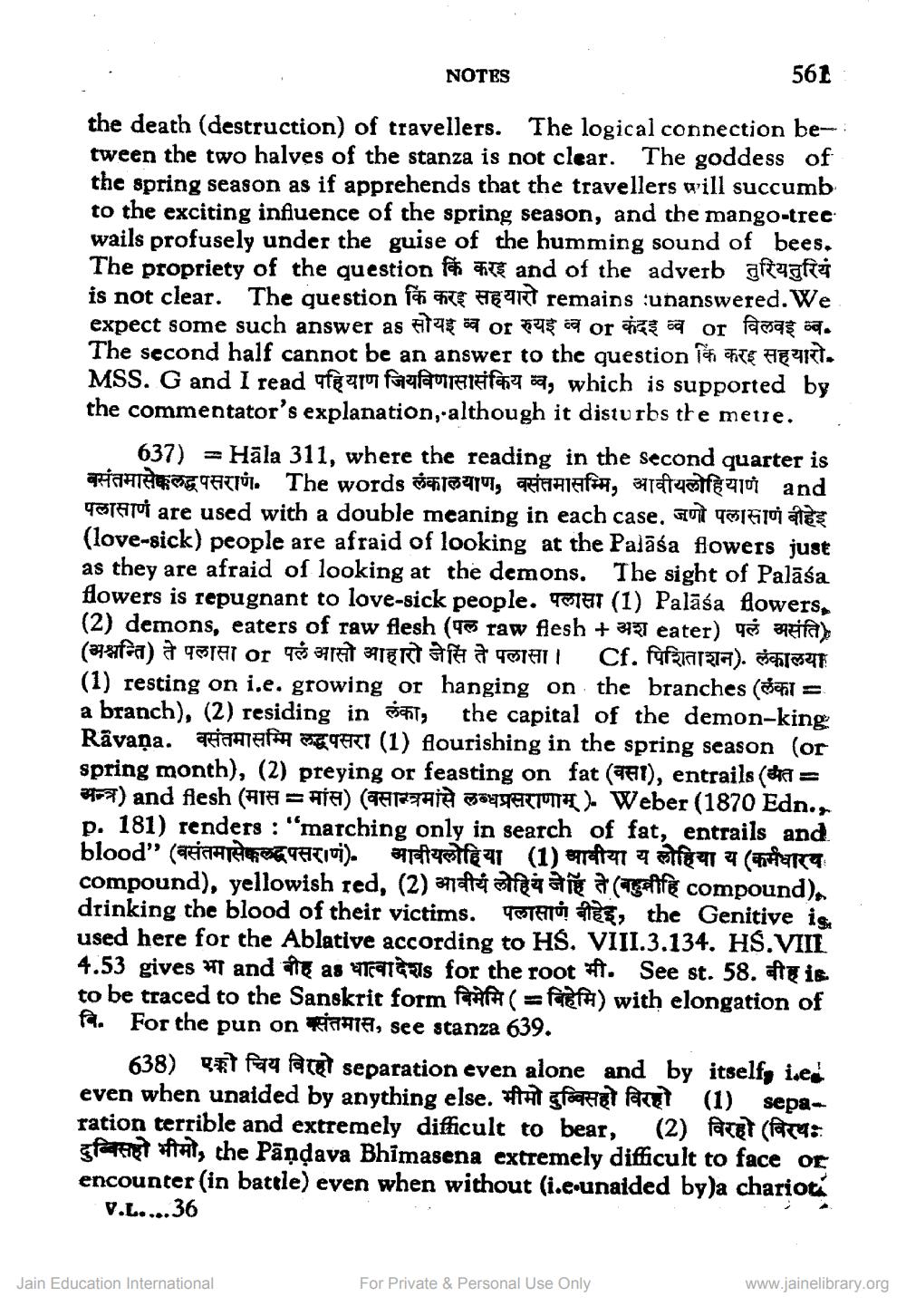________________
561
the death (destruction) of travellers. The logical connection between the two halves of the stanza is not clear. The goddess of the spring season as if apprehends that the travellers will succumb to the exciting influence of the spring season, and the mango-tree wails profusely under the guise of the humming sound of bees. The propriety of the question किं करइ and of the adverb तुरियतुरियं is not clear. The question f remains unanswered. We expect some such answer as सोयइ व्व or रुयई व्व or कंदइ व्व or विलवइ म्व. The second half cannot be an answer to the question किं करइ सहयारो. MSS. G and I read पहियाण जियविणासासकिय व्व, which is supported by the commentator's explanation, although it disturbs the metre.
NOTES
637) Häla 311, where the reading in the second quarter is बसंत मासेक्कलद्वपसराण. The words लंकालयाण, वसंतमासम्मि, आवीयलोहियाणं and पलासाणं are used with a double meaning in each case. जणो पलासाणं बीहेइ (love-sick) people are afraid of looking at the Palāśa flowers just as they are afraid of looking at the demons. The sight of Palāśa flowers is repugnant to love-sick people. (1) Palāśa flowers, (2) demons, eaters of raw flesh ( raw flesh + eater) fa (अश्नन्ति ) ते पलासा or पलं आसो आहारो जेसिं ते पलासा । Cf. पिशिताशन). लंकालया (1) resting on i.e. growing or hanging on the branches ( a branch), (2) residing in the capital of the demon-king Ravaṇa. afm Sqeri (1) flourishing in the spring season (or spring month), (2) preying or feasting on fat (1), entrails (a: =
) and flesh (AIA = ATA) (981PZAİÀ GQqPERI). Weber (1870 Edn., p. 181) renders: "marching only in search of fat, entrails and blood" (वसंतमासेकल्द पसरणं). आवीयलोहिया (1) आवीया य लोहिया य (कर्मधारय compound), yellowish red, (2) anté ààíà (fife compound).. drinking the blood of their victims., the Genitive is used here for the Ablative according to HS. VIII.3.134. HS.VIII 4.53 gives भा and बीह as धात्वादेशs for the root मी. See st. 58. बीह is. to be traced to the Sanskrit form बिमेमि ( = बिहेमि ) with elongation of बि. For the pun on वसंतमास, see stanza 639.
638 ) एको चिय विरहो separation even alone and by itself ived even when unaided by anything else. भीमो दुव्विसहो विरहो (1) separation terrible and extremely difficult to bear, (2) विरहो (विरथ:-- gfart, the Paṇḍava Bhimasena extremely difficult to face or encounter (in battle) even when without (i.e-unaided by)a chariot V.L....36
Jain Education International
For Private & Personal Use Only
www.jainelibrary.org




